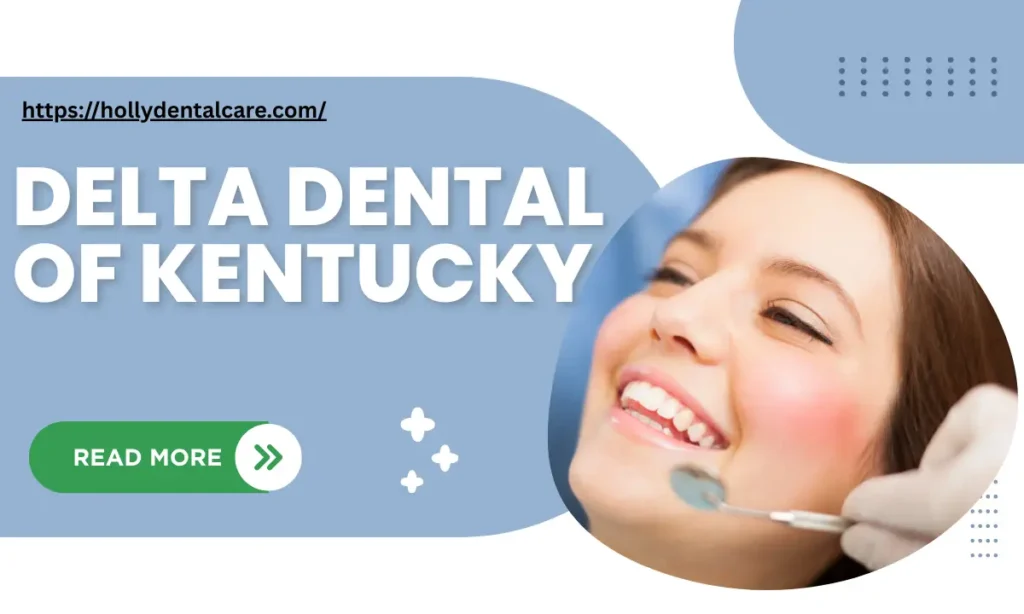Testosterone isn’t just a “male hormone” – it’s a critical hormone for both men and women that affects energy, muscle mass, bone density, cognitive function, and sexual health. As we age, testosterone levels naturally decline, leading to fatigue, reduced libido, weight gain, and decreased quality of life. Understanding how to naturally boost testosterone can transform your health and vitality.
The Science of Testosterone: Why Both Genders Need It
Testosterone belongs to a class of hormones called androgens, primarily produced in the testes (men) and ovaries (women), with additional production in the adrenal glands. This steroid hormone plays crucial roles beyond reproduction, affecting nearly every system in the body.
Testosterone Functions in the Body
Primary Physiological Roles: • Protein synthesis: Essential for muscle development and maintenance • Bone mineralization: Prevents osteoporosis and fractures • Erythropoiesis: Stimulates red blood cell production • Neurological function: Supports cognitive health and mood regulation • Metabolic regulation: Influences fat distribution and insulin sensitivity
Gender-Specific Testosterone Profiles
Normal Testosterone Ranges (ng/dL)
| Gender | Age Range | Optimal Levels | Low Levels | Deficiency |
| Men | 20-30 | 600-1000 | 300-599 | <300 |
| Men | 30-40 | 500-900 | 250-499 | <250 |
| Men | 40+ | 400-800 | 200-399 | <200 |
| Women | Premenopausal | 15-70 | 8-14 | <8 |
| Women | Postmenopausal | 10-50 | 5-9 | <5 |
Clinical Symptoms of Low Testosterone
Men’s Symptoms: • Decreased libido and erectile dysfunction • Reduced muscle mass and strength • Increased abdominal adiposity • Fatigue and decreased motivation • Mood changes and depression • Cognitive impairment (“brain fog”)
Women’s Symptoms: • Loss of sexual desire and arousal • Decreased bone density • Muscle weakness and fatigue • Mood disorders and irritability • Weight gain, especially visceral fat • Reduced exercise capacity
Evidence-Based Natural Testosterone Boosters
Clinically Proven Botanical Compounds
Tongkat Ali (Eurycoma longifolia): • Mechanism: Increases luteinizing hormone, stimulating testosterone production • Clinical evidence: 37% increase in testosterone in 12 weeks (Journal of International Society of Sports Nutrition) • Optimal dosage: 200-400mg daily of standardized extract • Bioactive compounds: Eurycomanone, eurycomanol, eurycomalactone
Ashwagandha (Withania somnifera): • Mechanism: Reduces cortisol, supports hypothalamic-pituitary-gonadal axis • Clinical evidence: 17% testosterone increase in stressed adults (Indian Journal of Medical Research) • Optimal dosage: 300-600mg daily (standardized to 5% withanolides) • Additional benefits: Stress reduction, improved sleep quality
Fenugreek (Trigonella foenum-graecum): • Mechanism: Inhibits 5α-reductase enzyme, preventing testosterone conversion to DHT • Clinical evidence: 46% increase in free testosterone (Phytotherapy Research) • Optimal dosage: 500mg daily of standardized extract • Active compounds: Furostanolic saponins, 4-hydroxyisoleucine
Essential Micronutrients for Testosterone Production
Zinc (Critical Cofactor): • Function: Required for testosterone synthesis and sperm production • Deficiency impact: 75% reduction in testosterone levels • Optimal intake: 15-30mg daily (avoid exceeding 40mg) • Best sources: Oysters, grass-fed beef, pumpkin seeds
Vitamin D3 (Steroid Hormone Precursor): • Mechanism: Directly influences testosterone-producing Leydig cells • Clinical evidence: 25% testosterone increase with optimization (Hormone and Metabolic Research) • Optimal levels: 50-80 ng/mL serum 25(OH)D • Dosage: 2000-5000 IU daily (monitor blood levels)
Magnesium (Enzymatic Cofactor): • Function: Involved in over 300 enzymatic reactions, including hormone synthesis • Research: 24% free testosterone increase in athletes (Biological Trace Element Research) • Optimal intake: 400-600mg daily • Forms: Magnesium glycinate or magnesium malate for better absorption
Lifestyle Interventions for Testosterone Optimization
Exercise Protocols for Hormonal Enhancement
Resistance Training (Most Effective): • Frequency: 3-4 sessions per week • Intensity: 75-85% of 1RM for compound movements • Volume: 6-8 sets per muscle group weekly • Rest periods: 2-3 minutes between sets • Key exercises: Squats, deadlifts, bench press, rows
High-Intensity Interval Training (HIIT): • Protocol: 30 seconds all-out effort, 90 seconds recovery • Duration: 15-20 minutes total • Frequency: 2-3 times per week • Benefits: Acute testosterone spike, improved insulin sensitivity
Nutritional Strategies for Hormone Support
Macronutrient Optimization: • Protein: 1.2-1.6g per kg body weight (supports muscle synthesis) • Fats: 25-35% of total calories (hormone precursor material) • Carbohydrates: 2-3g per kg body weight (prevents cortisol elevation)
Testosterone-Supporting Foods:
| Food Category | Examples | Mechanism |
| Healthy Fats | Avocados, olive oil, nuts | Cholesterol provision |
| Lean Proteins | Grass-fed beef, wild fish | Amino acid supply |
| Cruciferous Vegetables | Broccoli, cauliflower | Estrogen metabolism |
| Antioxidant-Rich Foods | Berries, dark chocolate | Oxidative stress reduction |
Sleep and Stress Management for Hormonal Health
Sleep Optimization Protocols
Sleep-Testosterone Relationship: • Peak production: Occurs during REM sleep phases • Sleep debt impact: 15% testosterone reduction per hour of lost sleep • Optimal duration: 7-9 hours nightly • Sleep hygiene: Cool, dark environment, consistent schedule
Sleep Quality Interventions: • Magnesium supplementation (200-400mg before bed) • Blue light blocking 2 hours before sleep • Room temperature maintained at 65-68°F • Consistent sleep-wake cycle within 30 minutes daily
Stress Reduction and Cortisol Management
Cortisol-Testosterone Inverse Relationship: • High cortisol suppresses gonadotropin-releasing hormone (GnRH) • Chronic stress reduces testicular and ovarian steroidogenesis • Cortisol competes for the same precursor (pregnenolone) as testosterone
Evidence-Based Stress Interventions: • Meditation: 20 minutes daily reduces cortisol by 23% • Deep breathing: 4-7-8 technique activates parasympathetic nervous system • Nature exposure: “Forest bathing” for 15 minutes reduces stress hormones • Social connection: Strong relationships buffer cortisol response
Comprehensive Natural Testosterone Enhancement
For individuals seeking a scientifically formulated approach to natural testosterone optimization, Stallion X represents a evidence-based solution designed for both men and women.
Stallion X’s Multi-Modal Approach: • Botanical extracts: Clinically dosed Tongkat Ali, Ashwagandha, and Fenugreek • Micronutrient support: Essential cofactors for steroidogenesis • Adaptogenic compounds: Stress reduction and HPA axis optimization • Bioavailability enhancement: Absorption-promoting compounds • Gender-appropriate formulation: Suitable testosterone support for both sexes
The synergistic combination addresses multiple pathways involved in testosterone production, rather than relying on single-ingredient approaches that may have limited efficacy.
Monitoring and Assessment Protocols
Laboratory Testing Recommendations
Essential Hormone Panel: • Total testosterone: Primary marker (morning collection preferred) • Free testosterone: Bioavailable hormone fraction • SHBG (Sex Hormone Binding Globulin): Affects hormone availability • DHT (Dihydrotestosterone): Active metabolite assessment • Estradiol: Balance evaluation (especially important for men)
Supporting Biomarkers: • LH/FSH: Pituitary function assessment • Cortisol: Stress hormone evaluation • Thyroid panel: TSH, T3, T4 for metabolic health • Vitamin D3: 25(OH)D status • Complete metabolic panel: Overall health assessment
Progress Tracking Metrics
Subjective Assessments: • Energy levels: 1-10 scale daily rating • Libido and sexual function: Weekly evaluation • Mood and motivation: Standardized questionnaires • Sleep quality: Sleep tracking applications • Exercise performance: Strength and endurance metrics
Objective Measurements: • Body composition: DEXA scan or bioelectrical impedance • Blood pressure: Cardiovascular health indicator • Waist circumference: Visceral adiposity marker • Grip strength: Functional muscle assessment
Safety Considerations and Contraindications
Medical Supervision Requirements
Conditions Requiring Physician Oversight: • History of hormone-sensitive cancers (prostate, breast) • Cardiovascular disease or risk factors • Liver dysfunction or disease • Sleep apnea (testosterone may worsen) • Polycythemia or blood clotting disorders
Natural vs. Synthetic Approaches
Advantages of Natural Testosterone Support: • Physiological regulation: Works within normal feedback mechanisms • Minimal side effects: Lower risk of adverse events • Sustainable approach: Long-term viability • Holistic benefits: Additional health improvements beyond testosterone
Creating Your Testosterone Optimization Protocol
Phase 1: Foundation (Weeks 1-4) • Implement sleep hygiene protocols • Optimize nutrition and eliminate inflammatory foods • Begin basic supplementation (Vitamin D3, Magnesium, Zinc) • Establish regular exercise routine
Phase 2: Enhancement (Weeks 5-12) • Add botanical testosterone boosters like Stallion X • Implement stress management techniques • Fine-tune exercise protocols for hormonal optimization • Monitor progress with subjective assessments
Phase 3: Optimization (Weeks 13+) • Laboratory testing to assess progress • Adjust supplementation based on biomarker results • Advanced lifestyle interventions • Long-term maintenance strategies
Conclusion: Evidence-Based Hormonal Optimization
Natural testosterone enhancement requires a comprehensive, science-based approach that addresses nutrition, exercise, sleep, stress management, and targeted supplementation. The research clearly demonstrates that natural methods can significantly improve testosterone levels while providing additional health benefits.
Companies like Nture understand the complexity of hormonal health and provide evidence-based solutions that work synergistically with your body’s natural processes. Their commitment to scientific formulation ensures that you receive clinically effective doses of research-proven ingredients.
Key Takeaways: • Testosterone affects both men and women throughout life • Natural approaches can significantly improve hormone levels • Comprehensive strategies yield superior results • Professional monitoring ensures safety and efficacy • Long-term lifestyle changes provide sustainable benefits
By implementing these evidence-based strategies consistently, you can optimize your testosterone levels naturally while improving overall health, vitality, and quality of life.



